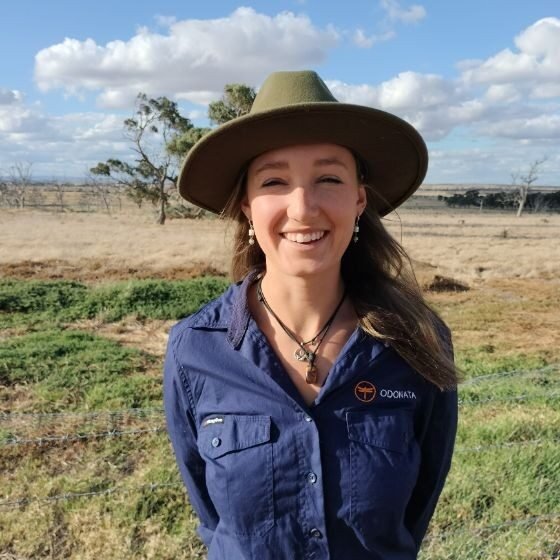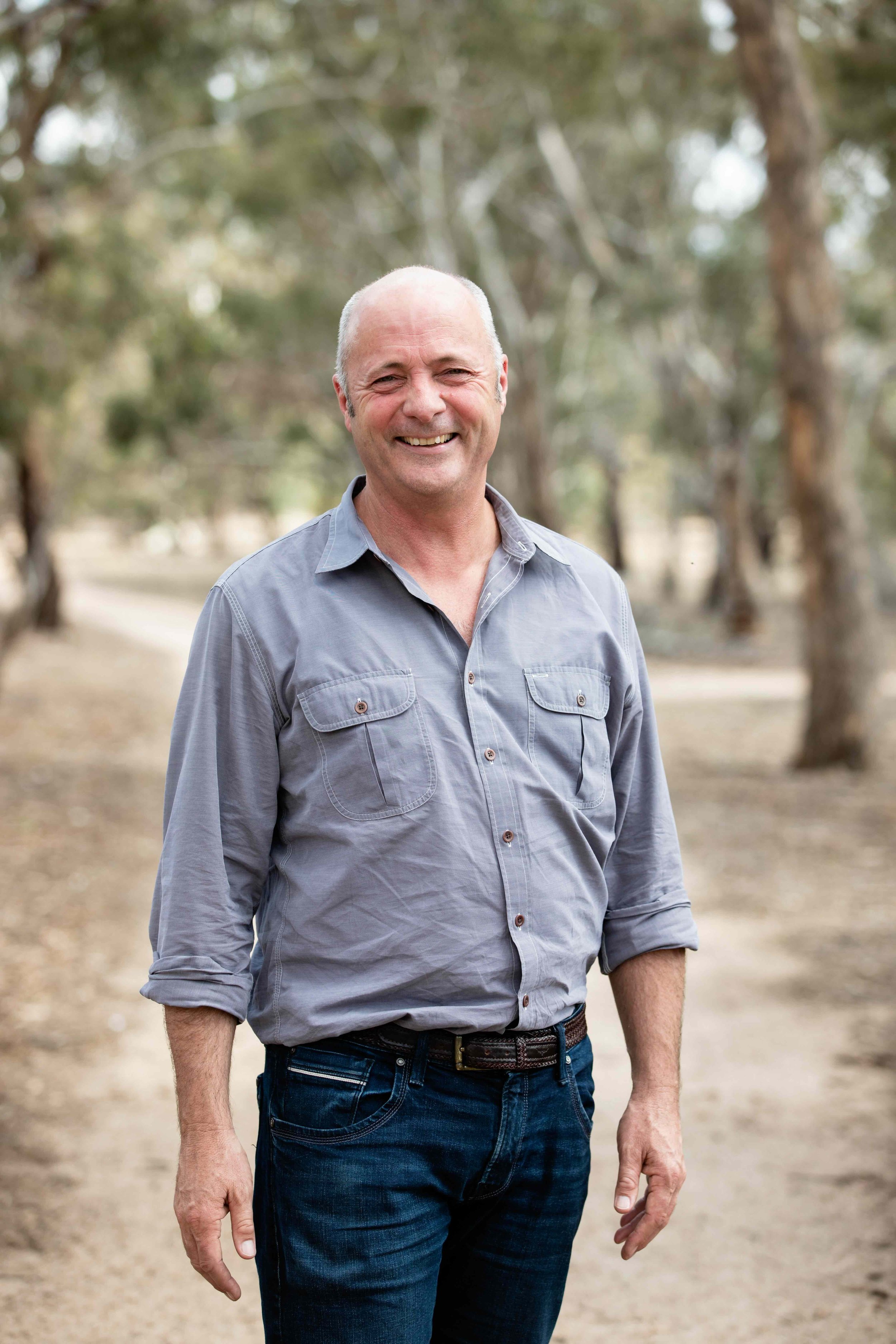
ODONATA
ACADEMY
Welcome to Odonata Academy
Odonata Academy is the education branch of Odonata Foundation, delivering courses designed to provide people with practical knowledge to restore ecosystems and protect biodiversity.
Our flagship course, Saving species: For landholders and farmers, equips landholders and farmers with the knowledge and skills to support threatened species recovery, and promote healthy ecosystems on their properties.
The course is built on Odonata’s extensive, hands-on experience in the field, deep connections with key stakeholders, and strong collaborations with leading scientific researchers.
By combining practical knowledge with the latest insights in conservation and land management, it provides participants with the tools, strategies, and confidence to create meaningful, lasting change for biodiversity and threatened species recovery.
Participants are guided step-by-step to develop a personalised Species Recovery Action Plan tailored to their land, goals, and local context. This plan will help you:
Identify priority species or habitats on your property
Pinpoint key threats
Choose appropriate and culturally respectful control methods
Engage neighbours and local networks for greater impact
Tap into funding, resources, and expert support
By the end of the course, you’ll walk away with a clear, practical, and achievable roadmap to start or scale your conservation efforts, one that aligns with national best practice.
Pricing
With support from The Ian Potter Foundation and The ERDI Foundation, the full course cost of $4,250 has been subsidised.
Subsidised price
$1,750
Modules and learning outcomes
-
Understand the causes and consequences of species decline
Explore the principles and strategies of species recovery
Explore the connection between species recovery and ecosystem health
Examine the distribution of Australia’s threatened species and role of private landholders in ecosystem recovery
-
Examine the practices of baselining and monitoring and their role in ecosystem restoration
Explore the use of data in tailoring restoration goals and strategies to meet site-specific needs
Consider the key environmental metrics to monitor
Explore when, why, and how to use different baselining and monitoring methods
-
Explore the ecological impacts of invasive species on ecosystems and native fauna and flora
Examine when, why, and how to implement different interventions to manage invasive species effectively and meet site-specific challenges
Consider the role of habitat restoration and supplementation in enhancing ecosystem resilience
-
Assess fencing suitability and impact
Examine fencing designs and features
Consider the planning, construction, maintenance, and monitoring of fences
-
Explore the role of ecological science in conservation decision-making and planning
Investigate the role of technology in enhancing restoration actions
Examine the evolutionary and genetic barriers that affect threatened species recovery
Discover the role of citizen science in supporting threatened species recovery
-
Understand the importance of engaging with the community to build local support, secure funding, and enhance project success
Identify key groups, organisations, and structures at national, state, and local levels that can provide resources, partnerships, and support
Explore strategies to foster collaboration and encourage active community engagement
-
Explore different business models that balance ecological impact with long-term financial sustainability
Develop a foundational understanding of Natural Capital Markets
Explore the principles, benefits, and practical applications of regenerative farming
Explore the key principles of soil-focused farming and their application in improving ecosystem health
-
Examine the federal, state and local legal frameworks that protect flora, fauna and culturally significant areas
Explore common restoration activities with legal implications
Consider when and why to partner with experts
Guided track
The Guided Track offers a focused, high-impact learning experience that builds your confidence, clarity, and connections. Over four months, you’ll get direct access to leading conservation experts, tailored advice, and the chance to apply what you learn through real-world, on-the-ground experiences. With regular interaction, peer support, and expert guidance, you’ll move from understanding to action alongside others who share your goals.
-
Access to all online learning modules
A suite of downloadable resources, tools, and templates to support action on your property, including step-by-step guidance to develop your own Species Recovery Action Plan
8 live, interactive webinars over 4 months to learn directly from species recovery experts and get personalised advice for your property
Mid- and end-of-term retreats at Mt Rothwell Sanctuary to see species recovery in action, build hands-on skills, and connect with like-minded landholders
Mentorship and community grow alongside a cohort of passionate, purpose-driven participants
Alumni network access for continued learning, connection, and collaboration
Access to Odonata’s annual conservation conference to stay informed, inspired, and part of the broader movement
4 months of structured support, with continued resource access to reinforce your learning
-
Online and in person
-
The course runs for 4 months, with a 2-hour live session every fortnight, and around 3-4 hours of self-paced work between sessions.
-
August – November 2025
February – May 2026
August – November 2026
2027 TBC
-
Enrolments close: Sunday 3rd August 2025
Course commences : Monday 11th August 2025
First Mt Rothwell retreat: Mid-term networking Thursday 9 - Friday 10 October
Second Mt Rothwell retreat: Action Plan presentation Thursday 11 - Friday 12 December
Course completion: Friday 12th December 2025
-
To ensure a personalised and high-quality experience, each Guided Track intake is capped at just 20 participants. This small-group format allows for tailored support, meaningful connections, and direct access to mentors and experts. Places fill quickly—secure your spot early.
-
We believe this course should be accessible to those ready to take action for nature. With support from The Ian Potter Foundation and The ERDI Foundation, the full course cost of $4,250 has been subsidised:
Course fee $1,750
Only 20 enrolments available
-
There are no formal assessments. Instead, participants are supported to develop a personalised Species Recovery Action Plan tailored to their land, goals, and local context. This is a practical, step-by-step process embedded throughout the course.
At the end of the course, you’ll share your plan with the group during a collaborative session at the Mt Rothwell retreat. This is an open, supportive discussion, not a formal presentation, designed to spark ideas, share insights, and strengthen each other’s projects.
-
Got a question or keen to get involved? We’d love to hear from you. Reach out to Kate Base, Odonata Academy Coordinator, for more information, support, or just a good chat.
Subsidised price is $1,750 (valued at $4,250)
· Secure your spot in our Academy course starting August 2025
· Only 20 places available
·
Subsidised price is $1,750 (valued at $4,250) · Secure your spot in our Academy course starting August 2025 · Only 20 places available ·
Interested in learning more about the course and whether it’s the right fit for you?
Watch the recording of our recent info session to hear from the Odonata Academy team, some of our Subject Matter Experts, and past participants.
You'll get an overview of the course format, what to expect, and how it supports landholders to take practical steps toward biodiversity and threatened species recovery on their land.
Subject matter experts
Georgia Randall
Baselining and monitoring
Sheryl Nettleton
Invasive species management
Sam Lancaster
Conservation fencing models
Jen Oceans
Community engagement
Nigel Sharp
Farming and natural capital markets
Matt Singleton
Species and regulatory frameworks
Course collaborators
Dr Damian Jones
Conservation technologies
Kym Kruse
Soil health and regenerative farming
Phil Ireland
Natural capital markets
Sam Marwood
Environmental business models
FAQs
-
Saving Species: For Landholders and Farmers is an applied conservation course that equips landholders, graziers, and farmers with the knowledge, tools, and confidence to support threatened species recovery and ecosystem health on their properties. Developed by Odonata, the course blends expert insights, practical guidance, and real-world examples to help you create a meaningful and achievable Species Recovery Action Plan.
-
This course is designed for:
Private landholders
Graziers and mixed-enterprise farmers
Conservation-minded property managers
Individuals ready to take practical action for biodiversity and species recovery
Whether you're just starting out or looking to scale your efforts, this course meets you where you are—with options for independent learners and those seeking hands-on, expert-supported guidance.
-
Across eight modules, you’ll gain skills in:
Assessing biodiversity and tracking ecological change
Managing invasive species and habitat restoration
Applying regenerative land management practices
Navigating natural capital markets and conservation policy
Engaging communities and building collaborative conservation networks
Each participant develops a personalised Species Recovery Action Plan, tailored to their land and goals.
-
The course runs for 4 months, with a 2-hour live session every fortnight, and around 3-4 hours of self-paced work between sessions.
-
No. This course is designed to be practical and accessible. Whether you’re managing thousands of acres or just beginning your conservation journey, the course will guide you step-by-step toward real-world action.
-
You’ll leave with:
A step-by-step Species Recovery Action Plan tailored to your property
Clear understanding of your land’s biodiversity values and threats
Strategies to manage invasive species and enhance ecosystem resilience
Tools to track ecological improvements over time
Clarity on where to start and what to prioritise
-
Enrolments are currently open for the 2025 - 2026 course intake. Spots are limited to only 20 places per Guided Track cohort.
Final enrolments for August intake close on Sunday 3 August 2025
Photography by Annette Ruzicka, Pete James.














